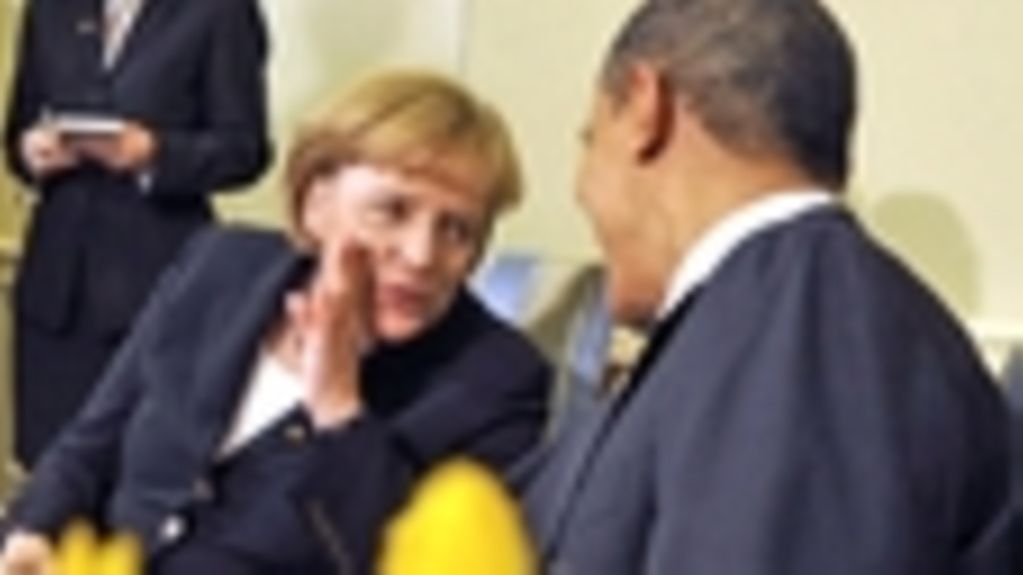Nuclear security
The first stop on Chancellor Angela Merkel's five-day visit to the USA is the Nuclear Security Summit in Washington D.C.. President Barack Obama has invited more than 40 heads of state and government to deliberate on how to prevent radioactive material falling into the wrong hands. On Tuesday evening the Chancellor will travel on to California.

Angela Merkel and Barack Obama last November
Photo: REGIERUNGonline/Kugler
During the Cold War a “balance of terror”, which was constantly in flux, reigned between the two military superpowers, the USA and the USSR. Since the fall of the Iron Curtain that divided Europe twenty years ago, the world has changed dramatically.
Last year, speaking in Prague, President Obama advocated a world without nuclear weapons. A few days ago the American government presented its new nuclear strategy, in which it specifically states that it will not develop any new nuclear weapons.
Almost exactly one year after his speech in Prague, the US President and the Russian President Dmitry Medvedev last week signed a new Strategic Arms Reduction Treaty (Start), again in Prague.
The New Start agreement to reduce strategic arms is the successor to the 1991 Strategic Arms Reduction Treaty. It will run for a term of ten years. In it Russia and the USA undertake to reduce the number of nuclear warheads on each side from 2,200 to 1,500 within the next seven years. The number of delivery vehicles (missiles, nuclear submarines and aircraft) is to be cut from the current level of 1,600 to 800 on each side.
Nuclear security – a new strategy for a peaceful world
One of the greatest fears of the world today is that nuclear materials may fall into the hands of terrorists. The Washington summit aims to reach an agreement in which participating states undertake to effectively protect such vulnerable material. The serious danger of international smuggling of nuclear materials is thus to be averted.
The heads of state and government of important nuclear powers will be sitting at the negotiating table in Washington D.C. – the Russian President Dmitry Medvedev, the French President Nicolas Sarkozy, India’s Prime Minister Manmohan Singh and Pakistan’s Prime Minister Yousuf Raza Gilani.
The Director General of the International Atomic Energy Agency (IAEA), Yukiya Amano, and the Secretary General of the United Nations, Ban Ki-moon, will also attend.
The heads of government of major emerging economies too will be at the summit, including the Chinese President Hu Jintao. Nuclear security comes very high on their list of priorities too. The emerging economies are, however, concerned that rigid regulations could make it difficult for their economies to use atomic power for peaceful purposes.
Research and business
The second half of the Chancellor’s trip to the USA will focus on research and business. Governor Arnold Schwarzenegger recently invited the Chancellor to California, and he will welcome her to Los Angeles on Wednesday. The Chancellor will be visiting the renowned Paul Getty Center, as well as meeting with representatives of the film industry.
On Thursday in San Francisco the Chancellor will be speaking to students at Stanford University, one of the USA’s best known private universities.
In the immediate vicinity is Berkeley University, one of the best state universities in the country. More than 8,000 research scientists work here. One field of their work is the futuristic field of nanotechnology. The Chancellor will be visiting Berkeley too.
Between the two universities lies Silicon Valley, synonymous with entrepreneurial development and innovation in the IT sector. Here Angela Merkel will be discussing with scientists how the results of research can be rapidly translated into practical business propositions.